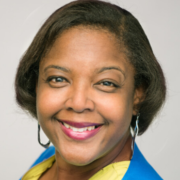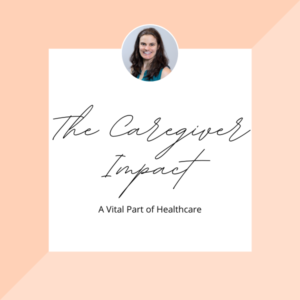The Caregiver Impact: A Vital Part of Healthcare
The worst fear comes to life when you’re diagnosed with cancer. Emotions bubble to the surface, including fear, anger, sadness, and frustration. Your mind goes in a million different directions and wants to ask a million questions. Why me? How did this happen? What is the rest of my life going to look like? Who can I tell and how can I tell them?
Often the first person we tell is our spouse, partner, or best friend. I remember calling my mom from my car in the parking lot of the radiology clinic. She was the one I had to tell first. She had a calm demeanor about her when I told her. It was as if she was saying, “We’re going to get through this together, and I’ll be there for you every step of the way.”
And she was. Honestly, I was aloof about my diagnosis. I accepted my diagnosis as a part of life, just something I had to deal with. I didn’t do any research on thyroid cancer, most likely out of fear. I heard what my doctors told me and didn’t question any of it. I knew they knew best. But my mom had a different plan. She got down to business and started doing research. Research on the thyroid, specifically its functions and hormones, that I was too “busy” to be bothered with. I didn’t have any symptoms, so I thought, “This is cancer. It’s no wonder the doctors told me it was the ‘good’ one.” I wouldn’t find out until after my treatment that there’s no such thing, but that’s another story.
My mom came with me to my appointments – every single one. Whether it was speaking with a doctor for the first time or the fifth, or getting a scan, she was right by my side. She let me speak and listened intently about how I felt and what I had hoped my outcomes to be. However, she knew when to chime in about things she had heard or read or when to ask for clarification on something that was said when I clearly must have had a confused look on my face, which unfortunately happens far too often in the cancer world. She was a second pair of eyes and ears guiding me along this journey, making sure I was getting the best treatment. We were a team in charge of my own health and healthcare.
The importance of caregivers should never be underestimated. Especially in cancer care, having someone by your side is crucial in helping you move forward in the right direction.
Top 5 Quick Tips for Caregivers
- Get organized, have a notebook for information or notes.
- Listen and reassure the patient of your support, confirm you are on their team.
- Be a resource, research the type of cancer, and other health conditions from a reputable source. Share the research when needed. Reputable information is power.
- Attend appointments or send someone, four eyes and four ears are much better than two. Patients should only have to concentrate on getting better.
- Work in time for yourself, start with 15 minutes. Caregivers can’t help or support anyone if they’re worn out.

Tips Authored by Sherea Cary, Care Partner Network Manager
Carly Flumer is a young woman who was diagnosed with stage I papillary thyroid cancer at the age of 27. She recently received her Master’s degree from Boston University in Health Communication and received her Bachelor’s from George Mason University in Health Administration and Policy. While being diagnosed with the “C” word at such a young age was a surprise, as it would be to anyone, she found strength, support, and inspiration in sharing her cancer journey on social media. As a result of her health outcome, she looks to advocate for other cancer patients through education, research, and health literacy.




